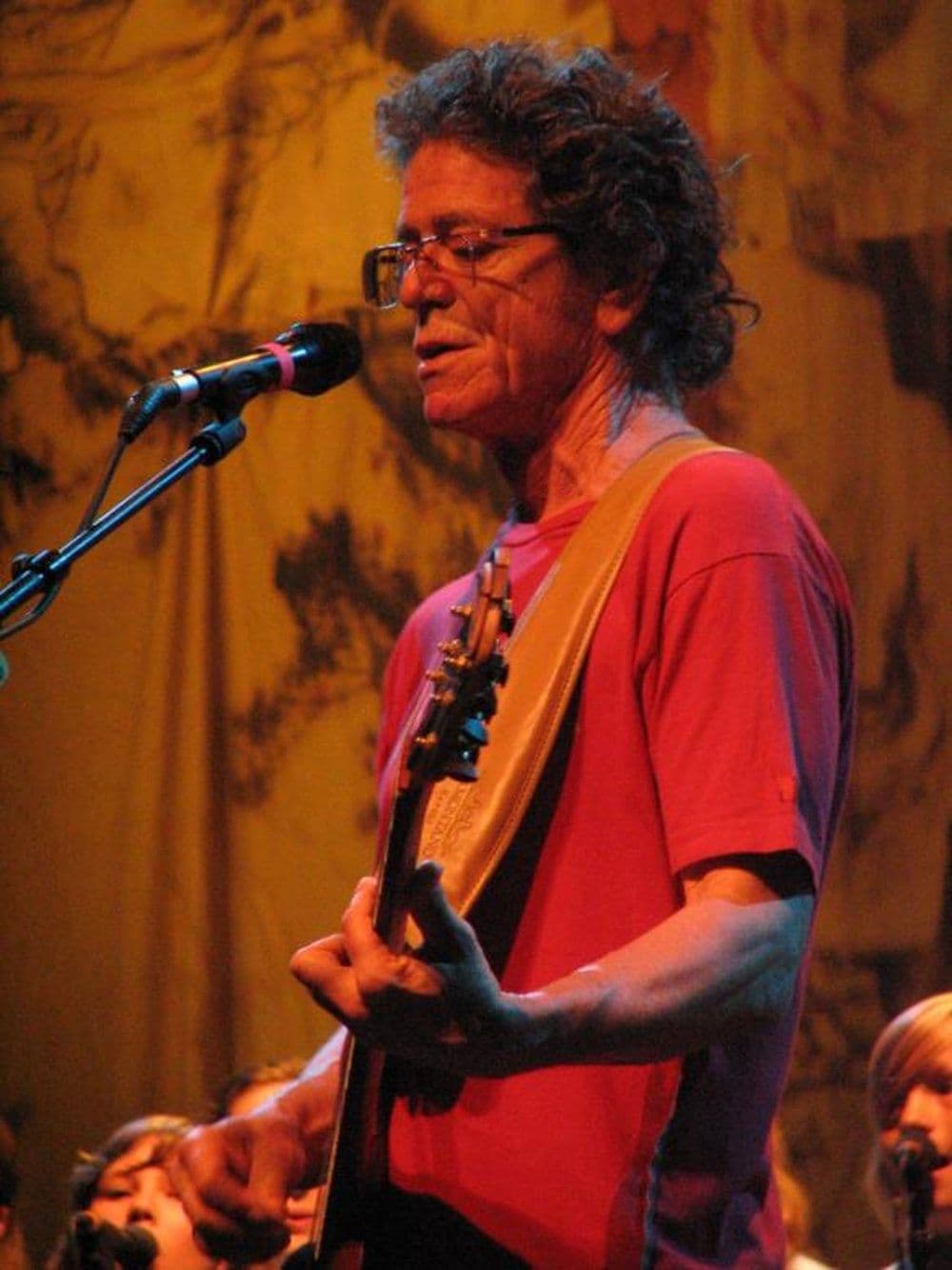Now that we don't have Lou
In the early 90s my endless search for technological satisfaction resulted in me adorning my stereo with a five CD changer, and it had a shuffle mode. It would occasionally play songs twice in a row, the programmer of its shuffle mode model having, presumably, used a die for a model, not a deck of cards. But that didn't matter much, I was happy to listen to songs from the Velvet Underground's Loaded – the one album that was perpetually on the CD player – over and over again.
Oh I do believe
You are what you perceive
What comes is better than what came before
Can that still be true, now that we don't have Lou?
On the same album he gave us some sage advice on how to pick up famous actors, advice more relevant today than ever. Just persevere with your obsession until the object of your desires is old and fat, then they'll be ‘Over the hill right... and looking for love’.
We never got Lou to a MOFO but we did get his Velvet Underground colleague, John Cale. He concluded a tremendous gig with a Velvets song, penned by Lou, the dark but potent Venus In Furs. A friend commented to me, with a tear in his eye, that he loved the new Hobart, because it reminded him of the old New York.
I am tired, I am weary
I could sleep for a thousand years
A thousand dreams that would awake me
Different colors made of tears
Among my favourite albums is the Lou and John Cale record Songs For Drella, wherein they dissect their relationship with Andy Warhol, and find themselves wanting.
And then I saw Lou
I'm so mad at him
Lou Reed got married and didn't invite me
I mean is it because he thought I'd bring too many people
I don't get it
Could have at least called
I mean he's doing so great
Why doesn't he call me?
It is great art, I think, to look through others’ eyes and see yourself. And when those others’ eyes are Andy Warhol's, then it is great pop art.
The trouble with a classicist he looks at the sky
He doesn't ask why, he just paints a sky
The trouble with an impressionist, he looks at a log
And he doesn't know who he is, standing, staring, at this log...
I like the druggy downtown kids who spray paint walls and trains
I like their lack of training, their primitive technique
I think sometimes it hurts you when you stay too long in school
I think sometimes it hurts you when you're afraid to be called a fool
There were many other albums and many other moments. A decade before, but still a late discovery, I played The Velvet Underground & Nico until my record player's fingers bled. It didn't make me a junkie, but I learned some of the attractions of dissolving.
Ah, when the heroin is in my blood
And that blood is in my head
And thank God that I'm as good as dead
And thank your God that I'm not aware
And thank God that I just don't care
In the end heroin, and alcohol, and being born over seventy years ago, killed him. About others I sometimes say it is tremendous good fortune to have the opportunity to die, because that means that one has had the tremendous good fortune to be born in the first place. Each of us has, among other things, enjoyed an unblemished ancestral record of at least 700,000,000 consecutive successful matings. So Lou was lucky to be born, and lucky to die. I'd like to thank all Lou's ancestors, the bacteria, and the fish, and the shrews, and his mother, for being horny, and for being attractive.
Lou Reed recorded a song about The Day John Kennedy Died. Some days we know we are going to remember, because our lives are inextricably bound to them. I'd better do something worthy today.

Photo by Marcelo Costa